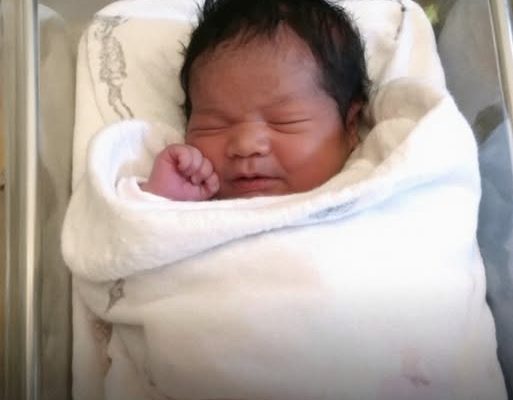When Finnick’s wife, Elodie, gave birth to their long-awaited baby, the joy of the moment shattered in seconds. The newborn’s skin was dark — a shock that sent ripples of disbelief and accusation through the delivery room. What followed would test their marriage, their faith, and Finnick’s own integrity more than anything before.
The Birth That Changed Everything
After five long years of infertility struggles and heartbreak, the couple had finally made it to the delivery room. Labor was long but smooth, and when their daughter arrived, the room filled with the sound of her cries — a moment of pure relief.
But that joy turned into chaos when Elodie looked at her newborn and froze.
“That’s not my baby,” she gasped. Her voice trembled as confusion gave way to panic.
Finnick’s heart dropped. The baby — their baby — had dark skin and a head full of curls. It didn’t make sense.
“Elodie,” he said quietly, staring down at the infant, “what’s going on?”
Tears welled in her eyes. “I swear to you, Finnick, I don’t know. I’ve never been with anyone else.”
The nurse confirmed the umbilical cord was still attached — this was undeniably their child. But the tension was already thick. Their families, who had gathered to celebrate, slipped out in awkward silence.
Overwhelmed, Finnick walked out of the room, his mind spinning with doubt and disbelief.
A Family Divided
In the hallway, Finnick ran into his mother — a stern woman who had never fully approved of Elodie. Her words were sharp and immediate.
“You saw the baby, Finnick. That’s not your child. You need to leave her.”
He wanted to fight back, but doubt had already crept in. “Mom, I don’t know what to think right now.”
“Then think with your head,” she said coldly. “Not your heart.”
But Finnick couldn’t just abandon his wife. “That’s my family in there,” he told her. “I’m not walking away until I know the truth.”
The Test of Truth
Down in the hospital’s genetics department, Finnick asked for a DNA test. Every minute waiting felt like torture — pacing, replaying every moment of their marriage, every reason he had to trust her… and every reason not to.
Hours later, the call came. The doctor’s voice was calm, but the words hit like thunder:
“The results confirm you are the biological father.”
Finnick’s knees nearly gave out. Relief came first, then guilt — heavy and suffocating. He’d doubted her. He’d almost walked away from the woman who’d done nothing but love him.
The doctor went on to explain that genetic inheritance is unpredictable. Traits like skin tone can resurface generations later due to recessive genes. Somewhere in their family history, those genes had quietly passed down — and now, they’d appeared in their daughter.
Science had spoken. The baby was his.
Facing the Consequences
When Finnick returned to the hospital room, Elodie looked up with tear-streaked cheeks and exhaustion in her eyes. He held out the test results with shaking hands.
“It’s you and me,” he whispered. “And her. Always.”
She broke down, clutching him as relief washed over them both. “You came back,” she said through tears.
“I almost didn’t,” he admitted, his voice thick with regret. “And I’ll spend the rest of my life making up for that mistake.”
He looked down at his daughter — her tiny face, her dimple that mirrored his own, and those unmistakable eyes. In that moment, everything else faded away.
The Lesson
Later, Finnick admitted that what hurt most wasn’t the doubt — it was how quickly it had come. “Love is supposed to mean trust,” he said. “But the second something didn’t make sense, I let fear take over. I’ll never do that again.”
He and Elodie named their daughter Grace, a fitting reminder of the mercy that had saved their marriage.
Now, when Finnick looks at his little girl, he doesn’t see confusion or shame — he sees a miracle that taught him the hardest, most important lesson of all:
Sometimes love isn’t proven by perfection. It’s proven by what you do when doubt tries to destroy it.



